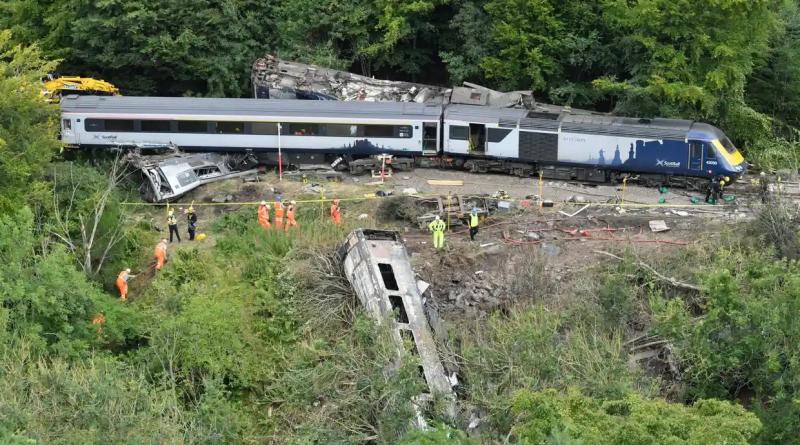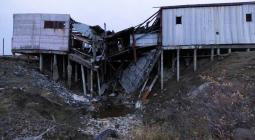Infrastructure at risk from climate crisis due to ministers’ ‘extreme weakness’

Joint committee on national security strategy says evasion of responsibility by UK government is ‘severe dereliction of duty’
Britain’s national security is being jeopardised because of the failure of ministers to prepare for the increasing risks of extreme weather events due to climate change, a parliamentary inquiry has warned.
The joint committee on the national security strategy said the UK’s critical national infrastructure (CNI) had been left exposed because of “extreme weakness” at the heart of government.
In what it described as a “severe dereliction of duty”, the committee said no minister was prepared to take responsibility for ensuring the resilience of vital power, transport and communications networks – even though climate change was a recognised national security risk.
It warned that major power blackouts, floods, road-blocking landslides and train lines buckling due to extreme heat had the potential to create a series of “cascading” risks affecting other infrastructure elements.
“We have found that the government has very little grip on a critical national security risk,” the committee, which is made up of senior MPs and peers, reported.
“Climate risks have previously been categorised as tier 1 national security risks, but a grave lack of ministerial responsibility and accountability has left a gaping hole at the centre of government on this pressing future risk to UK CNI.”
The committee highlighted Storm Arwen last November when almost a million people lost power, the Stonehaven rail tragedy when three people died in a derailment after torrential rain, and the failure of railway drainage systems that almost caused the national blood bank in Bristol to flood as examples of the sort of problems the country faced from the climate crisis.
It took evidence during last summer’s 40C heatwave when the country was facing significant rail disruptions, flight delays and power cuts due to another extreme weather event.
However, the committee said it was astounded that the minister nominally responsible for CNI resilience – the then-Cabinet Office minister Michael Ellis – refused to appear before it due to his “lack of command” of the issue.
“This acknowledgment of his lack of command of this issue – the reason given for his refusal – was in itself shocking, and suggests a severe dereliction of duty on the part of the government,” the committee said.
“It appears that no minister is taking responsibility for this topic, and there are no cross-cabinet committees driving forward the government’s work on adaptation and CNI resilience.
“It is hard to imagine the government taking such a lax approach to any other recognised national security risk.”
The committee called on the government to appoint a minister of state for CNI resilience with a team within the Cabinet Office to focus on the issue across a range of national security threats and hazards.
It said there should be a programme of regional exercises to ensure locally based responders – such as the emergency services, the NHS and local authorities – are properly prepared for extreme weather events.
The committee chair, former foreign secretary Dame Margaret Beckett, said: “Storm Arwen showed how quickly the effects of a power shutdown can impact on other sectors.
“These cascading crises are a major danger to the functioning of the UK economy, and to society – that’s why this is a serious risk to national security.
“This government must finally recognise that prevention is better than cure and move on from their dangerously reactive approach to risk management.”
COVER PHOTO: The Stonehaven derailment, which claimed three lives in August 2020 after faulty drainage systems failed to compensate for torrential rain, is but one example of UK infrastructure being overwhelmed by extreme weather events, with deadly results. Photograph: Ben Birchall/PA





